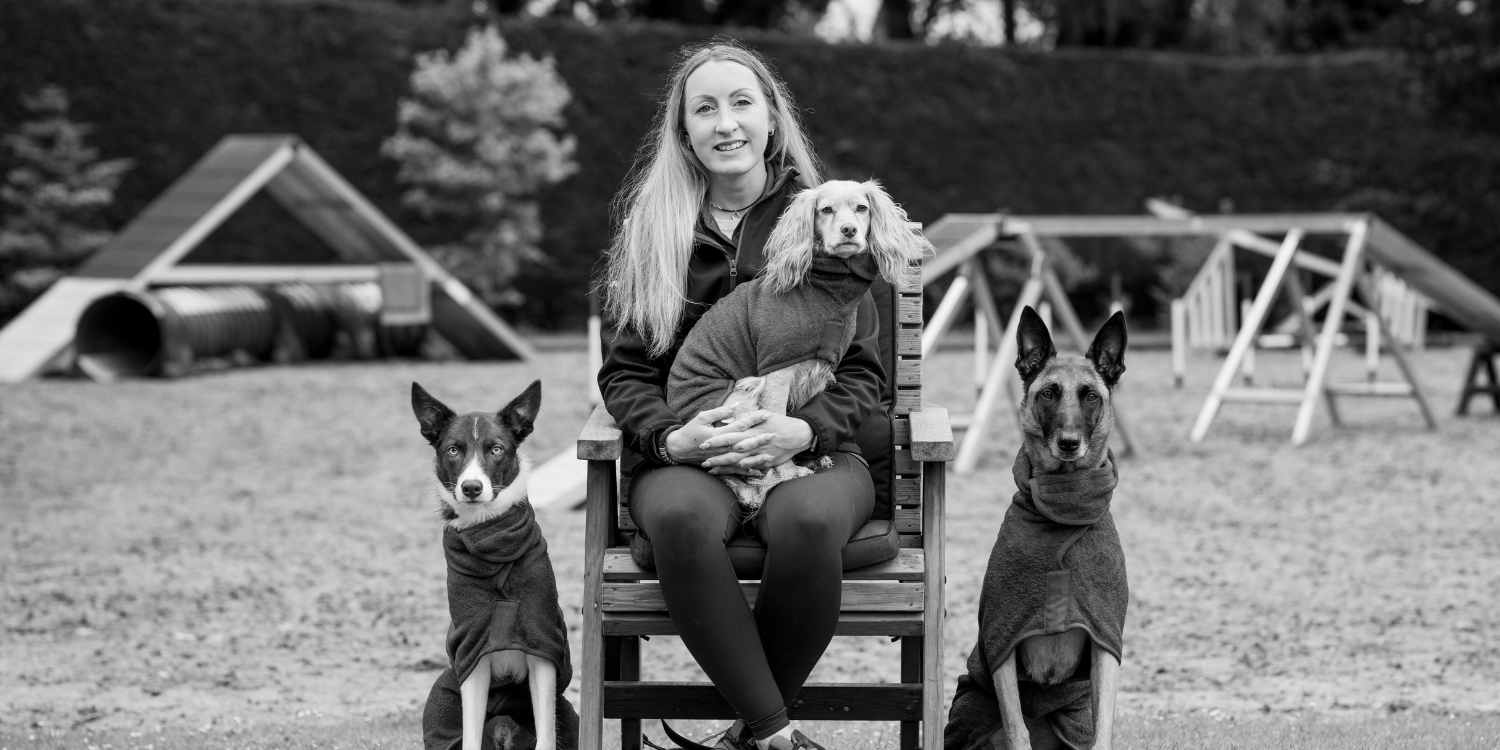
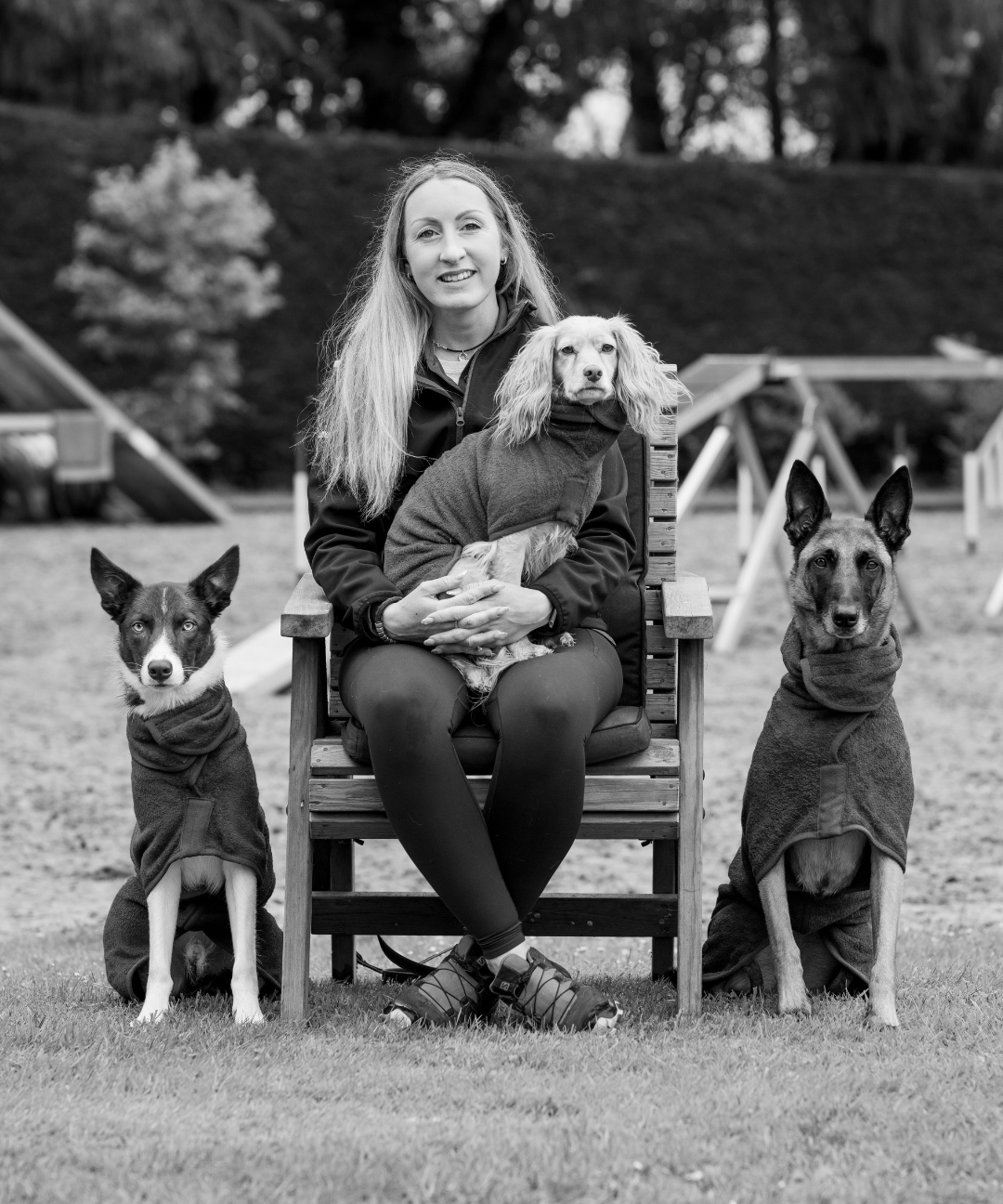
The Professionals - Part 1
FMBB Agilty World Champion Helen Postle
The Professionals - Part 1
FMBB Agilty World Champion Helen Postle
Ruff and Tumble products are trusted by professionals worldwide. In the coming months, we'll be featuring interviews with various experts in their fields. Our first guest is Helen Postle, the FMBB Agility World Champion.
How did you first get into agility?
Well, my mum got me into it. She started agility when I was about five or six and I used to go along with her every now and then if we didn't have a babysitter and sit and do homework or drawings. And then I actually got my first dog when I was 15. So I started competing when I was about 16/17 and done it ever since!
What do you love about agility?
I like achievement. So in anything I do, I, I want to be good at stuff. So even if it's small wins, I don't necessarily need to win a class but I want to achieve things. And when you're working with the dogs, even small wins. So working with my ten month old at the moment, achieving a wing wrap with him is fun and I like the progress. So that's my, that’s what I like and I am quite competitive so that helps as well.
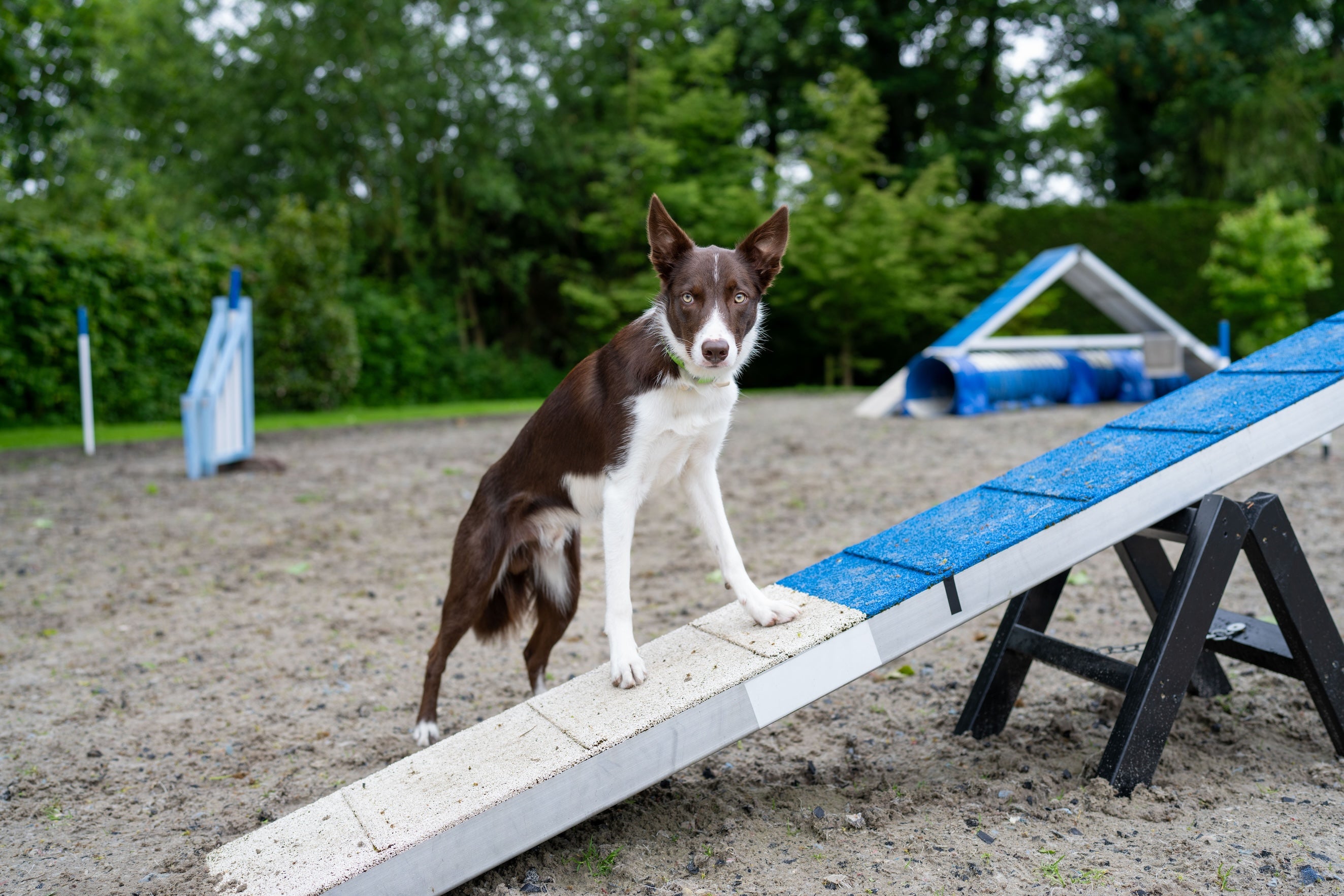
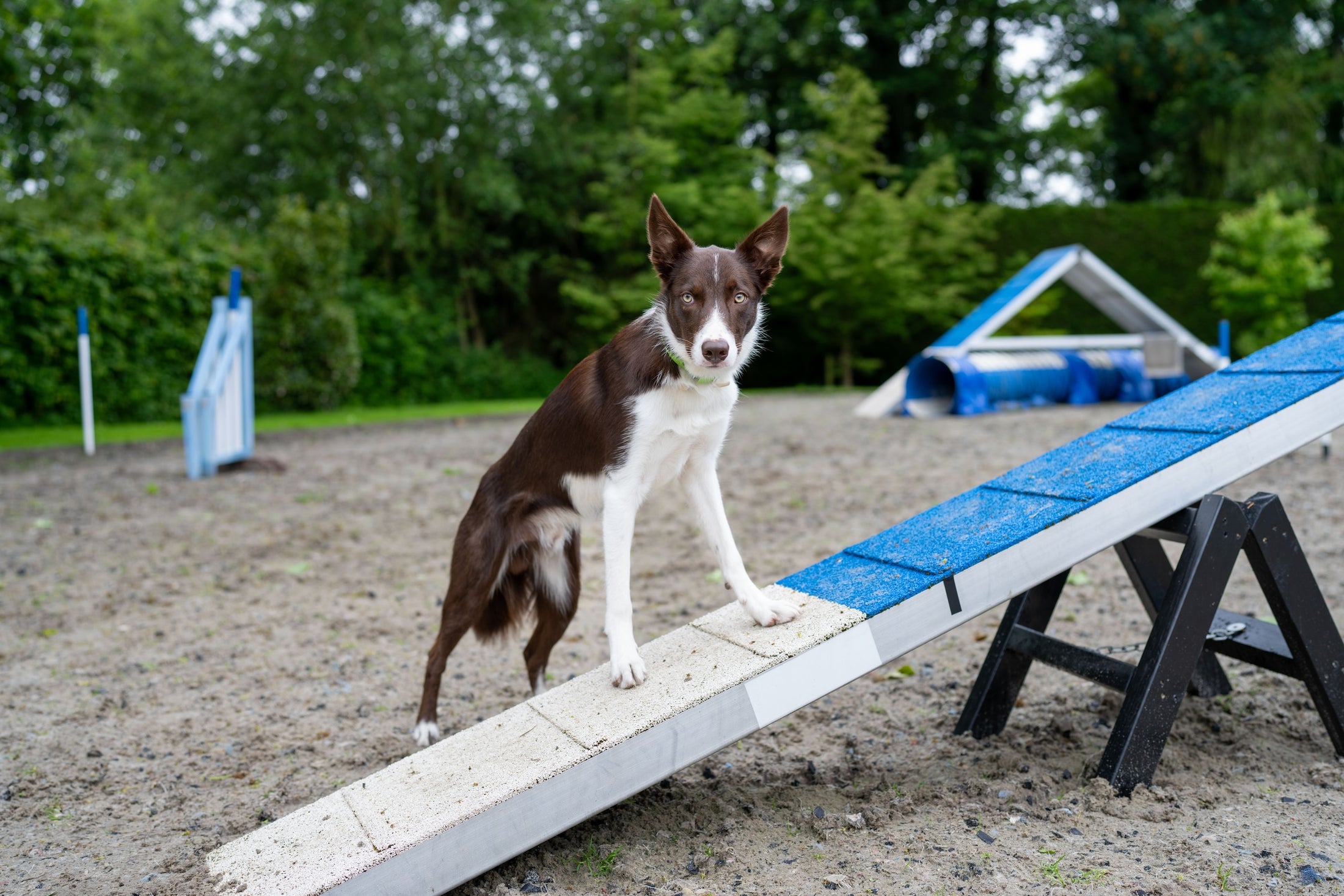
What are the highs and lows?
There's a lot of lows. So highs can be anything like, say, just really small wins to winning Crufts big time achievements and obviously you can't really top those. Lows are definitely when you've prepped really hard for something. Maybe months of preparation goes into an event and you have a bit of bad luck on your side. So maybe one pole will go down and that's it over. So months of prep for nothing.
Is the FMBB world title the pinnacle of your career?
Yes! With Vesper. So I guess each dog has their own pinnacle. So for me, winning the championship class at Crufts is, is on par with my older dog. Yeah, those two things are real highlights for me.
Tell us about the dogs you have trained.
I've had a variety, so I started with a very nutty Working Cocker Spaniel who took me to Crufts. I don't know how we got there, but she took me to Crufts. Then I got a rescue Kelpie who was superfast again. He took me to Crufts and won there. And then I had my first Border Collie, Neo, who got me on Team GB, which was really exciting. He was quite sensitive, so very, very different to the first two. So I had to work with something very different. And then obviously Vesper, who has been incredibly hard work, but it's paying off. I now have my young Working Cocker Spaniel who again is very sensitive and I'm now back to a Border Collie who is ten months old. So and again, he's intense is the best word to describe him.
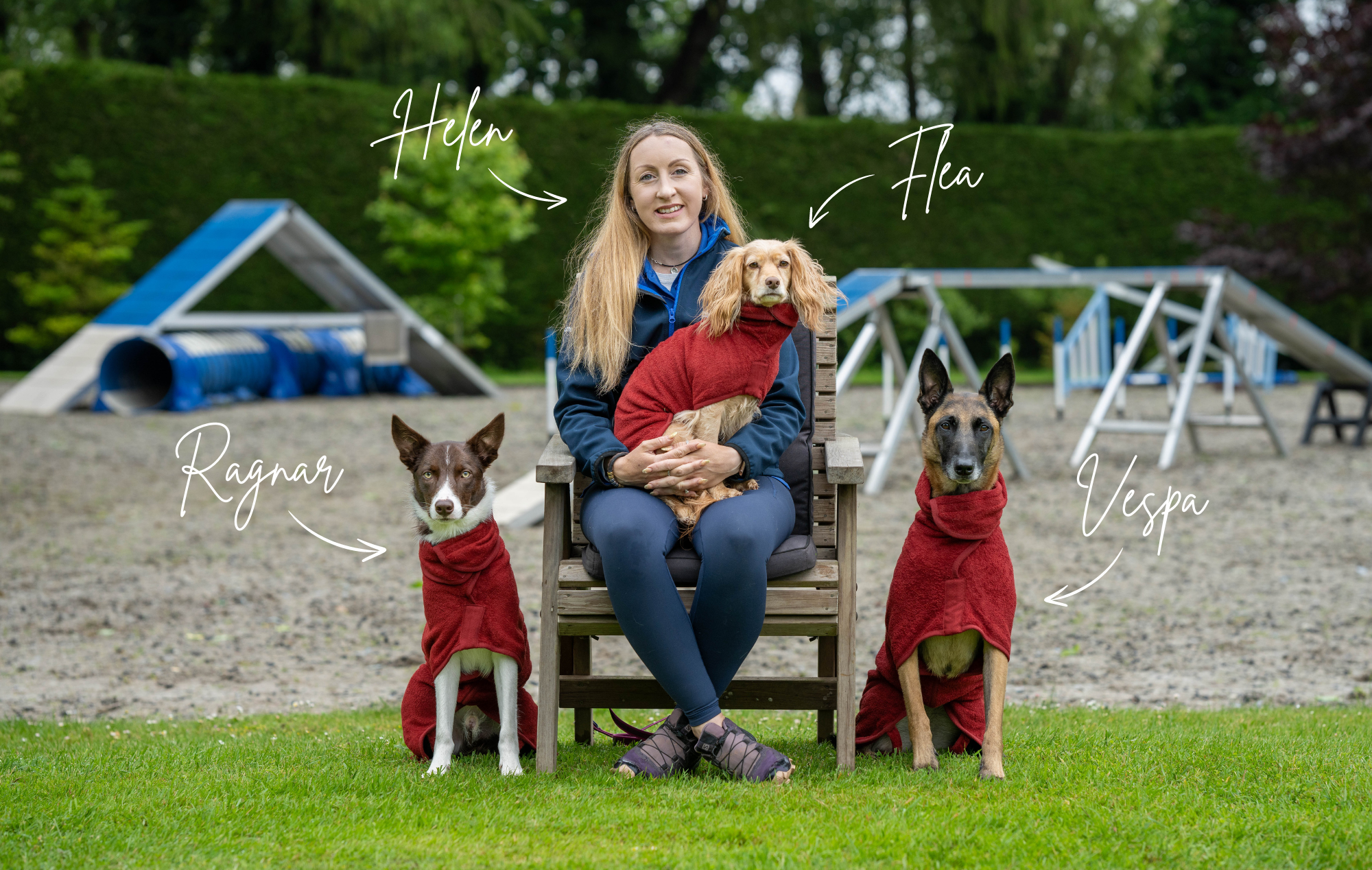

Can you tell if a dog is going to be good at agility and how do you choose your dogs?
Yeah. I think my first thing is I have to be able to live with them. So my dogs are my pets, first of all. So I need something that I can live with and that my husband can live with. So they're not going to be disowned if they can't do agility. So they're going to be there for life. So it's a long life, hopefully. So my top thing will always be temperament, temperament of the parents and hopefully wider family if you know it. And then obviously, yeah, if they've got those kind of nice confirmations and the rest of the family have good health scores, all those sorts of things and yeah, my first couple of dogs, no, because I didn't really know any different so they were just luck. Obviously one was a rescue, but now certainly, yeah, you do you’ll look a little bit more at lines and maybe what family members are doing.
What would you say to someone who is thinking about starting agility?
Get the right trainer. So, there's a Facebook page called Agility Net, and that would be the best place to ask for a decent trainer in your area. There are a lot of fantastic trainers now. So many, train with external trainers coming in from abroad to really bring in modern but safer training. Unfortunately, there are still some very old school trainers who do too much, too young, and if you put the wrong foundations in, then trainers like myself have to try and fix those problems and in some cases it’s very hard to fix. So good foundations are essential.

